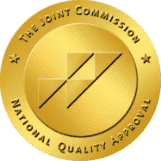Main Menu
Menu
- About Iris
- Our Programs
- Drug Detox
- Outpatient Programs
- Neurofeedback
- Aftercare
- TMS
- TMS for Addiction
- TMS for Depression
- TMS for OCD
- TMS for Anxiety
- TMS for PTSD
- TMS for Chronic Pain
- TMS Therapy at Iris Healing®
- More
- Does Medicare Cover for TMS Therapy
- How Long Do the Effects of TMS Treatment Last?
- How Many TMS Treatments are Needed?
- Off-Label TMS Protocols
- Pros and Cons of TMS Therapy
- TMS Results
- TMS Therapy and Mental Health
- TMS Therapy – How to Prepare
- TMS Effective for Parkinson’s?
- TMS Side Effects
- TMS Devices
- TMS for Asperger’s
- TMS for Autism
- rTMS – Benefits
- TMS Therapy Cost
- TMS for Tinnitus
- TMS for Schizophrenia
- What Does TMS Therapy Treat?
- What is TMS?
- Addiction Treatment
- Dual Diagnosis
- ADHD and Addiction
- Anxiety and Addiction
- Benzos and Alcohol
- Bipolar Disorder and Addiction
- Cannabis Induced Psychosis is on the Rise
- Depression
- Dissociative Identity Disorder
- Eating Disorders and Addiction
- Living with Schizophrenia and Addiction
- OCD and Addiction
- Schizoaffective Disorder and Addiction
- Sleep Disorders and Addiction
- Stress and Addiction
- Trauma & PTSD
- Trauma Informed Care and Addiction
- Treatment Modalities
- Holistic Approach
- Resources
- Blog
- Alcohol
- Addiction
- Brainspotting
- Drugs
- Mental Health
- Adderall weight loss
- Benefits of exercise for mental health
- Bipolar and Alcohol
- Borderline Personality Disorder vs Bipolar
- Healing from Trauma
- How does fentanyl kill you? What is a lethal dose?
- How long does hydrocodone stay in your system?
- How to admit yourself to a mental hospital?
- How to deal with someone who is Bipolar and angry?
- How to get a work life balance
- How to heal from childhood Trauma
- How to Help An Addict
- How to help someone with Depression?
- How long does klonopin stay in your system
- How to love a drug addict
- How to stop drinking Alcohol?
- Is Alcoholism genetic or hereditary? (Cornerstone)
- Is Adderall A Controlled Substance?
- List of emotions and feelings
- Long Term Side Effects of Klonopin
- What Is Paranoid Schizophrenia?
- Personality Disorder Test
- Postpartum Baby Blues vs Depression
- Schizoaffective Disorder vs Schizophrenia
- Signs and symptoms of a nervous breakdown
- Signs of Depression in Teens (Cornerstone)
- What are the Symptoms of Psychosis?
- Tips to Improve Your Mental Health
- What causes Depression?
- What does Adderall do if you don’t have ADHD?
- What does Fentanyl look, feel and taste like?
- What is a high dose of klonopin?
- What is bipolar depression?
- When Is Mental Health Awareness Month?
- Why am i sleeping so much?
- Why do Bipolar relationships fail?
- Why do people drink alcohol?
- Why is mental health important?
- Neurofeedback
- Relationship
- Other
- Insurance Verification
- Contact Us


















